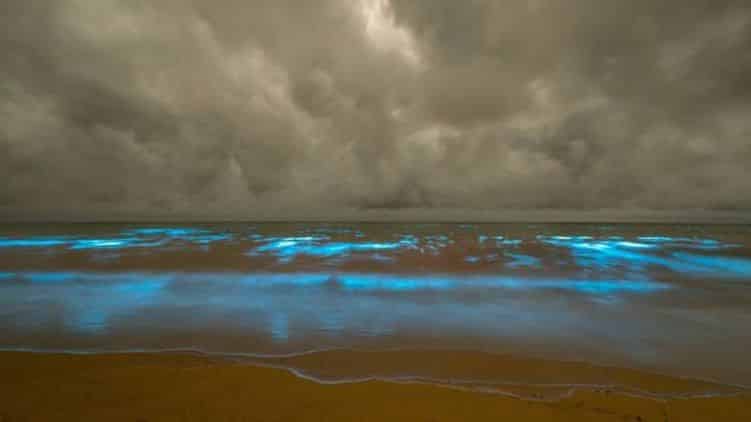
We recently reported about a ‘strange smell’ that had engulfed the whole city of Karachi. The city’s residents found it hard to decipher the real cause behind it and the issue began trending on social media. Today, it seems the mystery has been finally put to rest as World Wide Fund (WWF) has revealed the real source of the smell.
Several people had come up with different reasons. Some theories suggested it was the trash that started stinking due to the heat while some blamed the gutter leaks. A probable theory was presented by a weather expert and it seems it was only half true.
In its statement, WWF has confirmed that the stench was actually caused by the decay of small planktonic dinoflagellate called Noctiluca Scintillans (also known as Sea Sparkle). This sea sparkle only blooms in rich waters with agricultural pollution and becomes visible when disturbed.
Sea Sparkle feeds voraciously on phytoplankton resulting in excretion of high volumes of ammonia gas into the surroundings. This leads to the death of marine life and pungent smell in the surroundings.
According to WWF, mass bloom of this free floating organism was reported in the Arabian Sea along the coast of Pakistan. This bloom started appearing in February and peaked in April. It has turned the water color in its surroundings to green (bluish during night time).
This part explains why the smell was felt in Karachi. An influence of southwest monsoon in late May resulted in the decay of the bloom which caused the odd smell. The wind flow towards Karachi resulted in the smell reaching central areas of the city.
This isn’t the first time this has happened but this certainly doesn’t happen very often even though the bloom appears twice a year along the Pakistani coast. It’s because blooms aren’t as big as the current one and the winds usually don’t flow in this direction.
In case you are wondering, the smell isn’t toxic.
Senior Director Programmes, WWF-Pakistan, Rab Nawaz, has pointed out that the frequency of these blooms is increasing in Pakistan and it may be due to the climate change, however, other factors like environmental pollution may be behind it as well.